How to Take Care of Your Knife
Russ Chastain 07.05.18
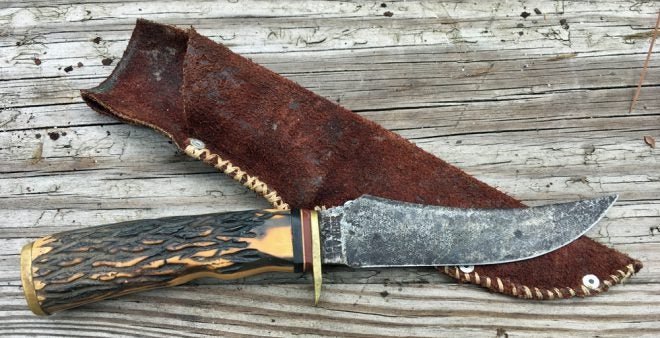
Most people in the world own knives, but not everyone knows the basics of how to take care of your knife. And while most knives are simple tools, they do need to be cared for. Here’s how!
Keep Your Knife Sharp
A dull knife is no good to anyone, unless maybe for shucking oysters. A knife is for cutting, and if you have to use a lot of force to cut because your knife is dull, that increases the chances of slipping or otherwise losing control of your knife. Un-good.
So sharpen your knife blade and keep it well-honed. Here’s a link to a post on how-to sharpen a knife.
Keep Your Knife Clean
A clean knife is a happy knife. It’s true! Not only will it cut more smoothly and be easier to sharpen, a clean knife will be easier to slip in and out of a sheath and/or fold and lock more easily. And a clean knife is less likely to freak out city folks when you pull it out of your pocket to cut your steak or pork chops.
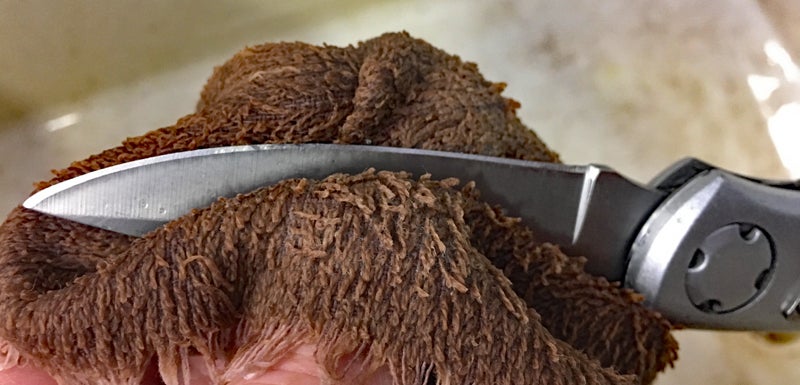
(Photo © Russ Chastain)
Learn how to clean your knife here.
Get Rid of Rust
Rusty blades cut poorly, are more difficult to clean and sharpen, and have a tendency to make your T-bone taste like ick.
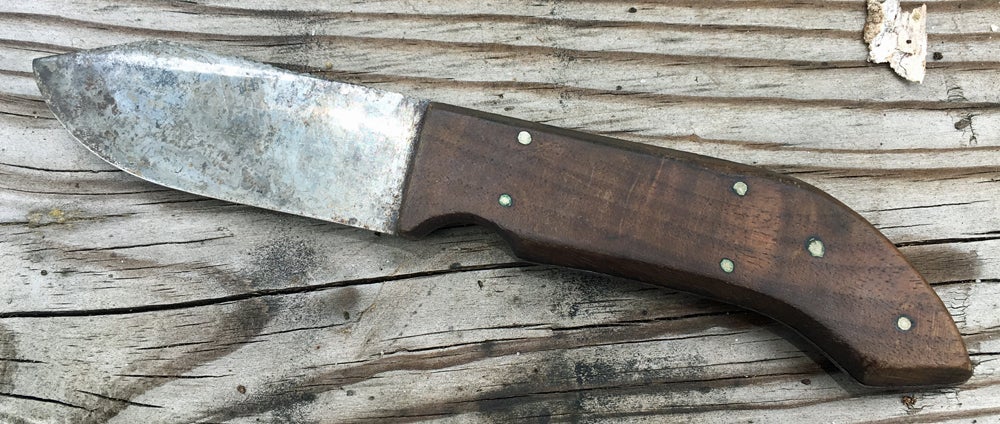
If your blade is rusty, clean that stuff off. The best way to do that is to put a few drops of light oil on the rusty spot, then rub the area lightly with fine steel wool. Wipe off the resulting rusty mess with a paper towel or rag, and repeat as necessary. When you’ve removed all of the rust, you’re done… and you can tell when you’re done because although pits may remain, you will be looking at steel instead of red/orange rust.
Use Oil to Prevent Rust
If your knife blade is prone to rust, keep some oil on that cutter. It’s not hard to do… just remove the rust (see above), put a few drops of oil on, and wipe the blade so it has a thin coat of oil — just like wiping down a gun. And if you’d rather not make your taters & onions taste like 3-in-1, just use some olive oil or vegetable oil.
Keep it Dry
When your knife gets wet, dry it off. That might just mean a swipe or two on your pants leg, or a more thorough drying via compressed air or something of that sort. Keeping your knife free of moisture will reduce the chance of rust and help keep it in working order… and it’s also best to keep your sheath dry as well.
Lubricate Moving Parts
Whether it’s an EDC liner lock or my favorite Leatherman Juice, an occasional drop of oil on the pivot points can make a world of difference in the ease of operation and my overall happiness. What’s worse than cutting open your cuticle because the screwdriver blade didn’t want to open? Not much, my friends. Not much.
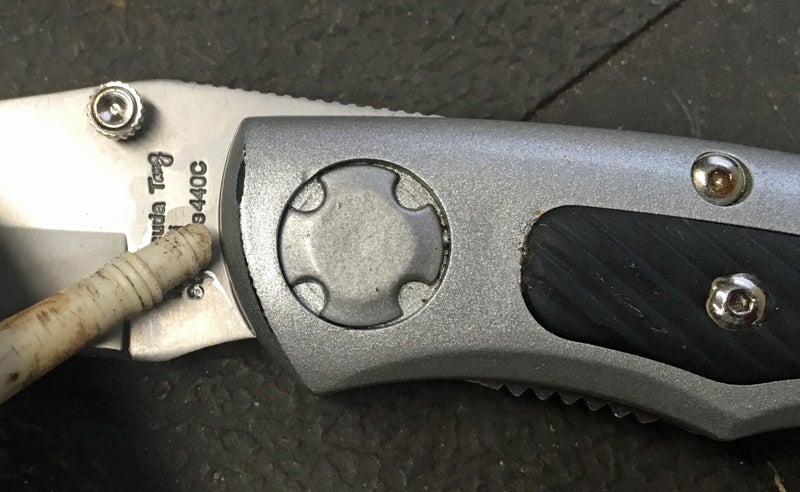
(Photo © Russ Chastain)
Inspect Them From Time to Time
Just because a knife was clean and happy when you put it away, don’t expect it to remain in that condition indefinitely. We all need some help in this ol’ world, and a knife that just sits around will be prone to rust and/or otherwise gunk up. Over time, oil can transform into a sticky residue, or simply dry up and allow a high-carbon blade to oxidize. And you don’t want to know what kinds of weird fungi I’ve caught growing on some bone and wood handles of knives that were stored in a humid location.
And then there’s the green gunk that grows on brass bolsters, especially if you have stored your knife in its leather sheath — which is a bad idea in itself.
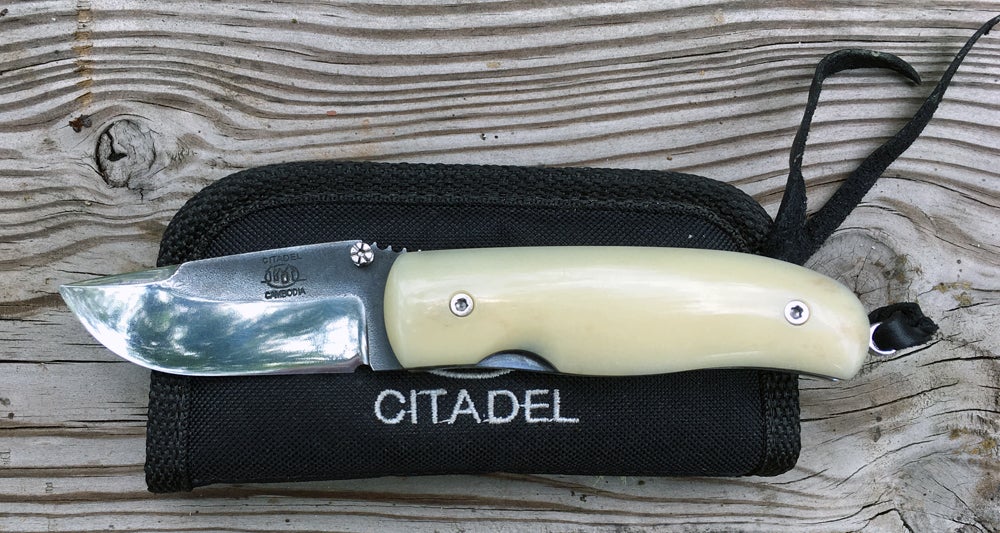
So, dig out your keen-bladed friends every now and then and give them a once-over. Test their edges, open and close them, make sure locks work well and sheath straps snap and unsnap as they should. And who doesn’t enjoy fondling some knives occasionally? Nobody I want to know.
Final Thoughts
Knives are simple tools, but they need care just like the rest of us. Happy knives lead to happy lives!